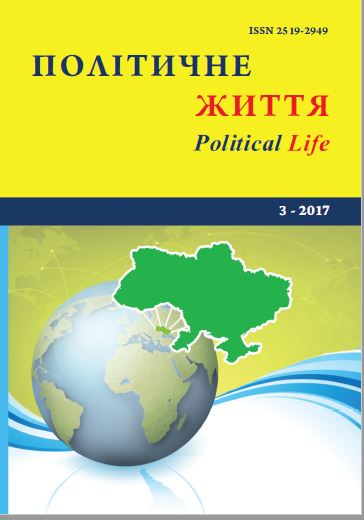National interest as a form of social integration.
Keywords:
national interest, nation, national state, redistribution of resourcesAbstract
The essence of the category "national interest" from the point of view of social dialogue is analyzed. The author substantiates the position that the basis of national interest are relations that are in this society in the process of distribution of resources and values. The antagonism of these relations is a major obstacle to the consolidation of society on a national basis. The nation, as a political community, performs the function of combining the small power resources of all citizens into a megaresource, which is delegated to the ruling elite. The latter also implements, on behalf of the nation, an authoritarian redistribution of resources in society. However, since the vast majority of citizens are in fact unable to exercise control over the actions of the ruling elite, at this stage there is the alienation of state power from its formal source - the nation. The political interest of the ruling elite, which is domination over society, always contradicts the political interest of the majority in political equality and political freedom.National interest as a result of the aggregation of diverse social demands in society reflects a competitive struggle for access to resources and public goods through the mechanism of a national state.References
Безрук О. О., Денисенко І. Д. Українське суспільство: теорія та практика демократичного транзиту // Сучасне суспільство. – 2013. – №. 2. – С. 13-27.
Денисенко І. Д. Модернізація України в контексті сучасних політичних досліджень та соціальних практик // Вісник СевНТУ. Серія: Політологія. — Севастополь: СевНТУ, 2011. — Вип. 123. — С. 83—86.
Parsons T. Societies: Evolutionary and Comparative Perspectives. / Т.Parsons – New York: Prestig-Hall, 1966.— P.129.
Касьянов Г.В. Система владних відносин у сучасній Україні: групи інтересів, клани та олігархія // Український історичний журнал. — 2009. — № 1. — С. 160-180.
Михайлюк О.В. Селянство як «уявлена спільнота» // Наукові праці історичного факультету Запорізького національного університету. — Запоріжжя: ЗНУ, 2009. – Вип.XXVII. – С.89-98.
Романюк О.І. Посткомуністичні трансформації: системний аналіз структурних особливостей // Вісник Харківського національного університету імені В. Н. Каразіна. Серія: «Питання політології». — Харків, 2009. ― № 839. ― Вип. 14. ― С. 40―49.
Кулішенко Т.Ю. Децентралізація влади в європейських країнах в контексті впливу ресурсозабезпечених груп // Гілея. Історичні науки. Філософські науки. Політичні науки: Наук.вісник: зб. наук. праць.—Київ: Вид-во НПУ ім. М. П. Драгоманова, 2016.—Вип. 108.— С. 297—299.

